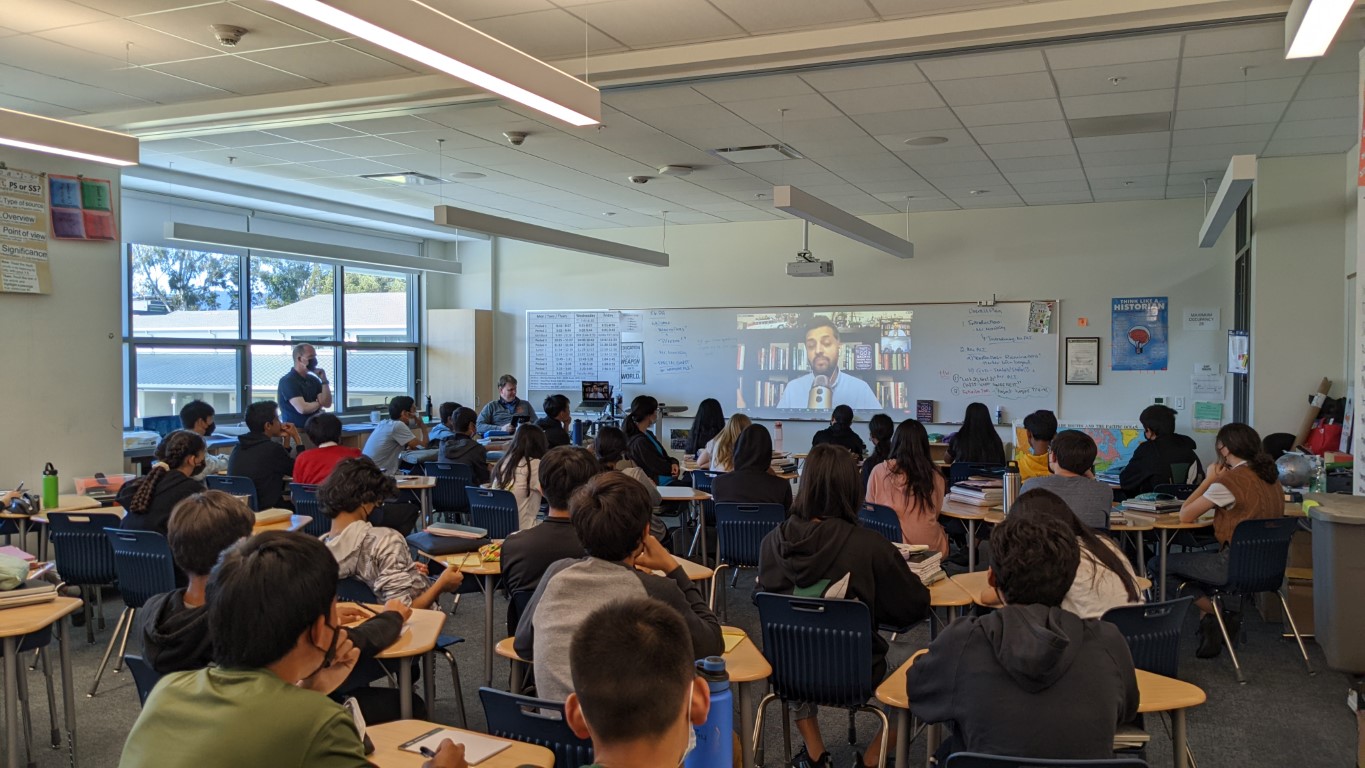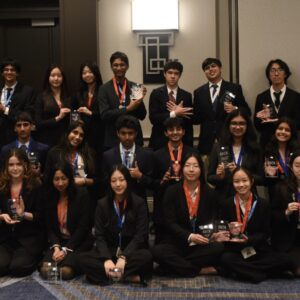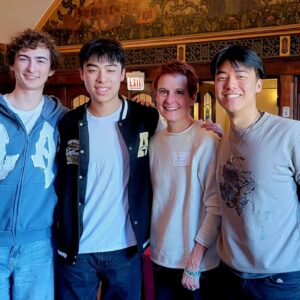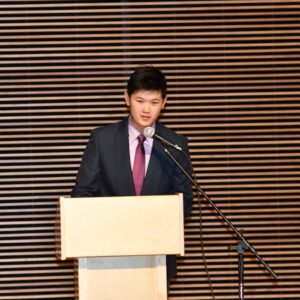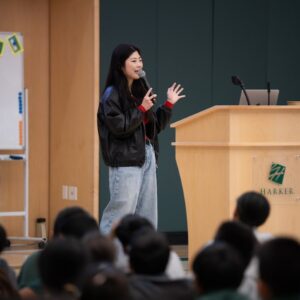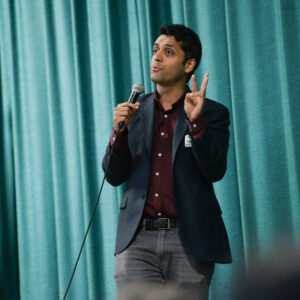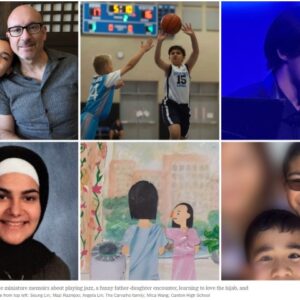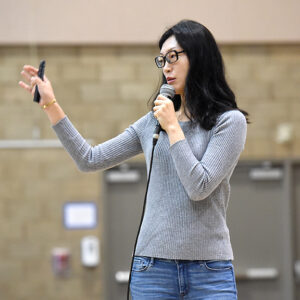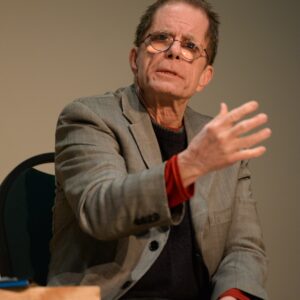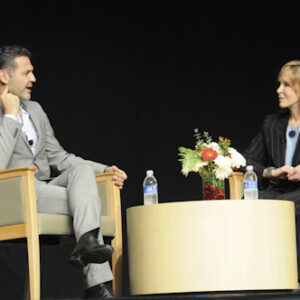Author and columnist Wajahat Ali MS ’94 – who recently published his book, “Go Back to Where You Came From” and whose work has been seen in the The New York Times, The Atlantic and The Daily Beast – made a series of appearances via Zoom for middle school students last Friday to talk about his life growing up in a South Asian Muslim family, how his life changed after the events of 9/11 and how he ended up in his career as a writer.
Born and raised in Fremont, Ali described feeling left out of the dominant American narrative from a very young age. “School is oftentimes the first place where you learn your rank in the American hierarchy,” he said. “You realize that no one else speaks Urdu, you realize that no one else has lentil stains on their shirt. …You realize, oh, I’m not the protagonist of the narrative. I’m not even the co-protagonist. I’m the punchline, the sidekick, the villain.”
Growing up, Ali frequently felt pressured to conform to whiteness in an effort to be considered “mainstream,” he said. “You realize … whiteness is centered in America and brownness and Blackness and Asianness are on the fringes, and our job is not to rock the boat, but row the boat and smile with our white teeth showing and nod our heads and be grateful for a sidekick role.”
Ali discovered his gift for writing and oration in grade 5, where a teacher encouraged him to share a short story he’d written with his classmates, inspired by the Moorish Muslim character Azeem from the film “Robin Hood: Prince of Thieves,” played by Morgan Freeman. “They laugh at all the right parts. They applaud at the end. Their eyes widen,” he recalled, “and for the first time ever, my class … embraced me.”
Ali found that his parents were supportive of his desire to develop his talent even though seeking a career as a writer ran counter to what Ali called the “checklist of success,” which he described as: “You went to the best school, you got the best GPA, you got the best wife and husband, you got the best job, you got the best car. Sure you might be miserable and you might be popping Xanax and you might hate your spouse and you might hate your job, but smile with your white teeth showing, and if you suffer, suffer well.”
He went on to attend UC Berkeley, remaining undeclared until his senior year. As an officer in the Muslim Students Association, Ali found himself directly exposed to the anti-Muslim sentiment that rose rapidly after 9/11. “I got emails telling me, ‘Go back to where you came from,’” he said. “I got emails telling me, ‘you terrorists.’”
The role Ali found himself in was one he and his peers had no experience with. “There was no training, no one held our hand. There were no lessons in how to be an ambassador,” he said, later describing how the aftermath of 9/11 left him standing on “two islands. I was American through citizenship, but I was ‘them’ because I wasn’t white. I was ‘us’ because I had a passport and was born and raised in this country, but I was ‘them’ because I am Muslim or looked Muslim-y.”
Moved to activism by the political and social climate, Ali began speaking more and writing more, inspired in part by one of his teachers, the poet and novelist Ishmael Reed, who told Ali that he could fight back through art and storytelling.
At the age of 21, just before graduating and while considering law school, Ali’s parents were arrested as part of an FBI anti-piracy initiative called Operation Cyberstorm. Nearly any sense of security he and his family had gained suddenly disappeared. “Everything was gone overnight,” he said. He was now in the position of having to take care of his family while managing his parents’ legal calamity. Following a torturous legal process, his parents ended up going to jail for four years.
Ali mentioned this chapter of his life as an example of how “the checklist at times blows up. Things don’t go according to plan. You won’t get into the school that you want to get into. You don’t do the major you want to get into. You won’t marry the person you want to get married to.” These circumstances, he added, also happen against a background of social problems such as climate change, which further add to the demands that younger generations must adapt to, but which can also become opportunities. “In a strange way, if [my parents’ arrest] had not happened, I would probably be miserable, going through my first divorce, realizing I married the wrong woman and probably popping Xanax every day,” he said.
“Oftentimes, if we’re going to be honest with ourselves, we get handed down a script and a checklist that we have not written or created,” he said. “And so the test … is how do we create our own checklist? What happens if that checklist blows up?”
